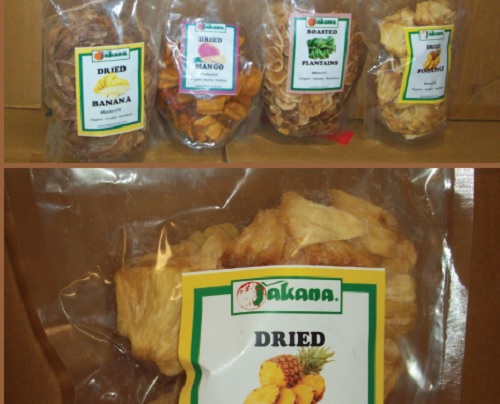
But focus on export poses unexpected challenges
Kampala, Uganda | ANDREW S. KAGGWA | Uganda’s organic farming scene could change dramatically if a new model introduced by the government catches on.
To see the model first hand, one must travel 56 kilometres west from the capital, Kampala, to Kampiringisa in Mpigi District. This is the site of a vast 100 acre model organic farm run by the Ministry of Gender, Labour, and Social Development in collaboration with United Nations Development Programme (UNDP).
There are no fruits on the farm – yet. Instead, only quick maturing vegetables, such as tomatoes, green beans, okra, cabbages, African garden egg plants, cucumber, water spinach, pumpkins, and pepper grow in neat rows of verdant green.
There are also gardens with cassava, maize, sweet potatoes, banana, cashew nuts, jute, strawberries, and sweet corn.
This organic farm, the first of its kind in Uganda, is perhaps an indication of how important organic farming and export of organic products is becoming to some government policy makers.
Uganda tops Africa
Organic farming is a very small component of the farming sector in Uganda. Compared globally, Uganda has the second largest number of organic producers; 190,000– following India’s 650,000.
But Uganda has the largest organic area (231,157 hectares) and the largest number of organic producers in Africa. This is according to the 2009 edition of the yearbook “The World of Organic Agriculture”, published by IFOAM, the Germany based Research Institute of Organic Agriculture (FiBL) and the International Trade Centre ITC.
According to more statistics from the National Organic Agricultural Movement of Uganda (NOGAMU), which brings together most organic farmers and exporters in Uganda, the number of certified organic farmers has also grown more than 10 times from 15,000 in 2002/3 to now over 190,000.
NOGAMU) says the contribution to the country’s economy from export of organic products rose to US$55 million in the 2015/16 financial year up from US$46 million in 2014/15. This was also 11 times more than the paltry US$ 5 million from the export of organic products in 2002/3.
The Head of Programs at NOGAMU, Jane Nalunga says the products grown organically and exported from Uganda include: cotton (lint, yarn and garments), coffee (Arabic and Robusta), simsim, dried fruit (pineapples, apple bananas, mangoes, and jack fruit), fresh fruits (pineapple, apple bananas, passion fruits, avocadoes, papaya/pawpaw, and ginger) and jack fruit. Others are vanilla, cocoa, fish, shea butter and shea nuts, bird-eyed chillies, dried hibiscus and honey.
The renewed government interest in organic farming promises to push even more products. That is good news for large players in the country’s organic farming sector, like Jakana Foods, a plant in Kawempe, a suburb north of Kampala City on Bombo Road, processes fruit and vegetables for the local and export market.
Managing Director Meg Hilbert Jaquay says, for the local market, Jakana mainly processes fruit juices. But for the export market, they deal mainly in dried tropical fruits; including pineapples, pawpaw, jackfruit, and sweet bananas. Jakana, according to Meg, exports its organic fruits to the U.S., UK, Turkey, Germany, Belgium, Switzerland, Greece, Singapore and Taiwan.
Meg says she has orders to supply, on average, six tonnes per month of organic fruits to markets abroad. But Jakana can only supply one tonne.
“We don’t have the capacity to dry the fruits,” Meg says.
She says, normally for organic products, natural methods should be used to dry the fruits but she often resorts to electric driers to ensure she meets the orders.
But there is another twist to the tale; the strict rules around organically growing the fruits mean that only a few farmers qualify to supply Jakana.
Under the rules, organic farms should not use synthetic pesticides, antibiotics, synthetic fertilisers, genetically modified organisms, and growth hormones in their production processes. The farms must also use an integrated farming system to sustain and enhance soil fertility and biological diversity.
Strict standards
Also, Meg says to qualify to supply, a farmer must be a member of a farmers’ association, must attend training organised by the different organisations involved in export of organic products, and also allow their farms or orchards to be inspected by the concerned bodies for international certification to supply organic products on the international market.
The farmers must use in appropriate application of manure compost on the fruits, including not applying manure to a plant which they are going to harvest from in the next 90 days and for ground crops in the next 120 days.
The farmers are also required to create a three meter buffer zone between their gardens and those of their neighbours who are not organic farmers to avoid contamination of their crops, and as a condition for certification, they must plant trees in and around their gardens as a method of conserving the environment.
Meg says the farmers are inspected regularly and those who fail to meet the requirements are dropped from their list of suppliers. They can be reinstated if they meet the conditions.
Meg says the organic foods production process rigour is because exporters like Jakana also have to be certified by international organisations like Certification of Environmental Standards (CERES) and Hazard Analysis Critical Control Points (HACCP).
The strict guidelines mean only a few farmers qualify to supply Jakana. Meg says competition is intense for produce of a few farms. Competition narrows margins, and Jakana often finds it cannot break-even after processing fruits for export.
Another exporter of organic foods from Uganda, Irene Kugonza Bamugaya, says competition for fruit is set to rise as the local market also becomes exciting.
Bamugaya, who is Managing partner Exclusive Organics Uganda Limited, mentions Bugoloobi Market in one of Kampala’s suburbs which has an “organic corner” of stalls that sell only organic foods.
Then there is the competition from Kenyan traders who invade the Ugandan fresh market, ratcheting up prices. Meg says organic products are favoured by health conscious shoppers because they have no trace of dangerous chemicals.
“I know people who grew up eating wheat products but all of a sudden have now become allergic to wheat because of the chemicals sprayed on it,” Meg says.
According to the International Federation of Organic Agriculture Movements (IFOAM), an umbrella organisation for organic farming organisations, the market for organic food and other products has since 1990 grown rapidly, reaching $63 billion worldwide in 2012.
This demand has driven a similar increase in organically managed farmland that grew from 2001 to 2011 at a compounding rate of 8.9% per annum. There are no newer figures.
According to IFOAM as of 2016, approximately 57,800,000 hectares (143,000,000 acres) worldwide were farmed organically, representing approximately 1.2 percent of total world farmland.
A 2014 study published in the British Journal of Nutrition found that organically grown crops were not only less likely to contain detectable levels of pesticides, but because of differences in fertilisation techniques, they were also 48% less likely to test positive for cadmium, a toxic heavy metal that accumulates in the liver and kidneys.
For Kugonza, however, there is only one concern.
“The demand is growing every day,” she says, and somehow, it must be satisfied. That is where the government’s intervention becomes critical to address some of the challenges the organic farmers face.
Kugonza says organic farm produce farmers face challenges of product perishability, compliance to strict international standards, high freight charges, and high consumer expectations for quality and safety.
She also says many customers want the prized organic products but few can pay the high prices compared to ordinary products.
Fake inputs and conmen
On the supply side, Andrew Ndawula Kalema, the proprietor of Talent Agroforestry Farm in Nakaseke, a certified organic farmer and one of the suppliers of Jakana Foods says the unavailability of inputs on the local market like seeds and fertilisers is one of the challenges for organic farmers.
“Except a few of us who produce our own organic fertilisers others have to import the inputs from countries like India at a high cost,” Ndawula says.
Ndawula also explains that in areas of farming like livestock keeping it’s next to impossible to practice organic farming because of the big number of ingredients used in the feeds.
“Take an example of poultry keeping. If one is to produce for the organic market one has to make sure of the source of each of the ingredients used in the mixing of feeds,” Ndawula explains.
Another challenge many farmers face is the cost of processing certification. “The charges depend on the size of the farm and this could cost $3,000 (about Shs 11.4m) to $10,000 (about Shs38m) which is too much since most are smallholder based,” Herbert Musisi another certified organic farmer in Mukono District explains. His advice for farmers is to get group certification than individual.
Crop financing is yet another challenge. The market is available but the farmers cannot export because they do not have enough capital to invest, and banks will not lend smallholder farmers and ask for high interest rates.
Other challenges include has been setting up quality management systems which include training and documentation.
There are infrastructure challenges too. Demand is for quality products, say, processed fruits either dried or in pulp form but accessing the machinery to do the job comes at a cost. Then the transport cost, both at seaport and airport, makes Ugandan farmers less competitive because the products will be more expensive because the country is landlocked.
On the legal angle, though Uganda enjoys a competitive advantage in the organic market it lacks a national policy to streamline the growing and exports of organic products.
“It’s disappointing this policy has been lying in cabinet for years and has not been brought to Parliament for it to be passed,” Florence Nassuuna of the Advocacy Coalition for Sustainable Agriculture (ACSA), one of the non-governmental organizations promoting organic farming said.
She explained that the lack of a policy has led to conmen parading products as organic when actually they are not.
 The Independent Uganda: You get the Truth we Pay the Price
The Independent Uganda: You get the Truth we Pay the Price



